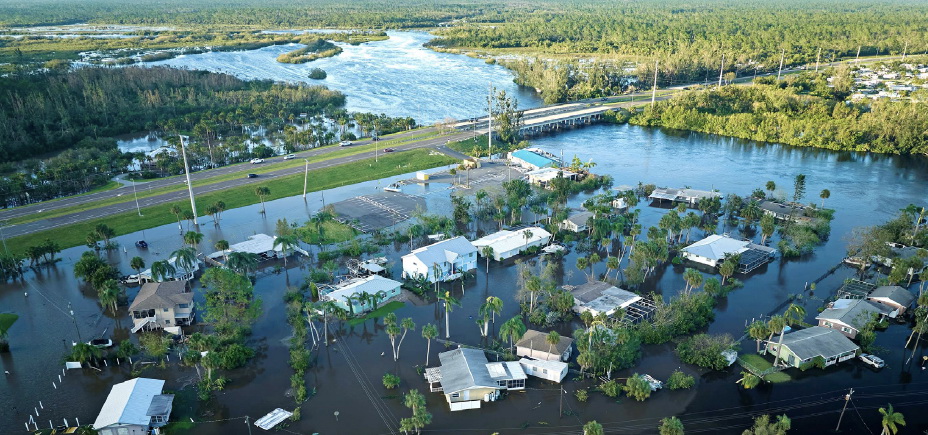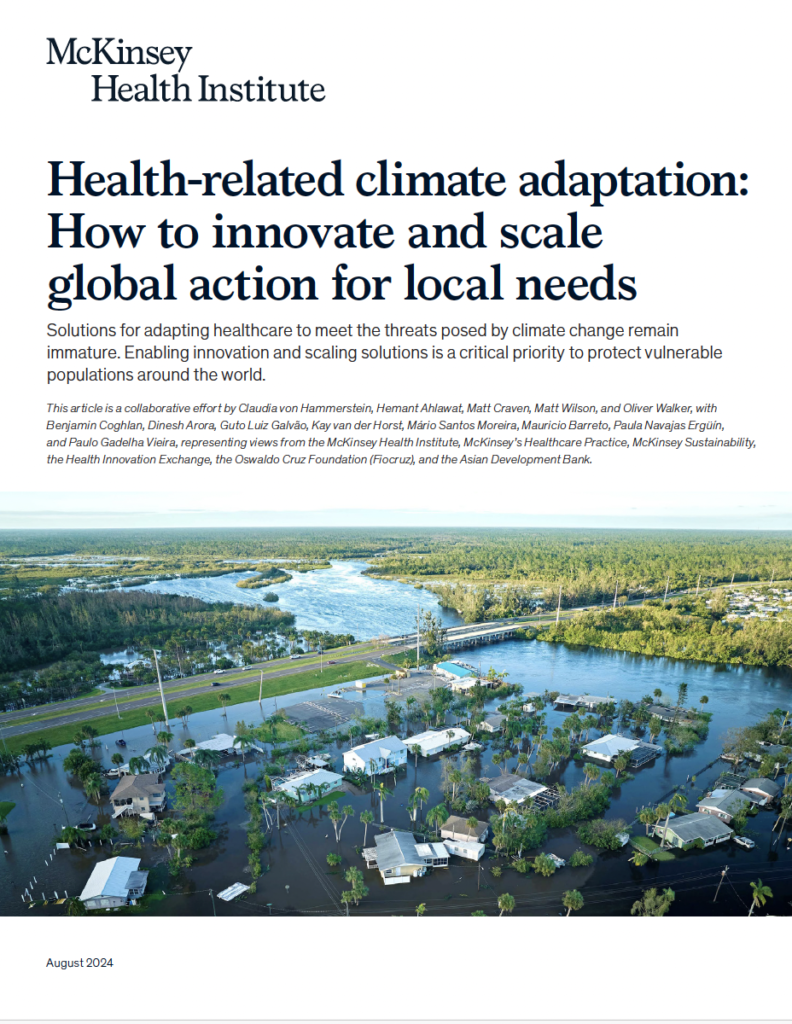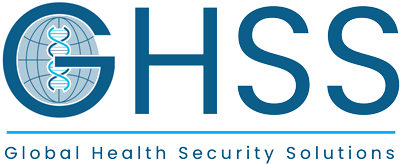
At COP 29, Dubai, (November 11 -22, 2023), Global Health Security Solutions, The McKinsey Health Institute (MHI) and the Health Innovation Exchange (HIEx) forged a partnership to advance global understanding and scientific research on the impact of Climate Change on Global Health.
As a result of this collaboration, in partnership with the Asian Development Bank (ADB), and Fiocruz, today we published a groundbreaking new report https://lnkd.in/eWQjWjBh identifying how climate change is projected to negatively impact human health and what interventions are well-positioned to ease its effects.
With the World Health Organization identifying climate change as “the greatest threat to global health in the 21st century,” and existing solutions remaining immature, the time is now for innovative climate adaptation. However, these opportunities are largely untapped by the global health community.
The report explores three priorities to address climate-related health challenges and help secure a livable and sustainable future for all:
- Innovation in products and technologies that seek to reduce the burden of climate change on health.
- Enhanced climate-health surveillance, early warning and response systems to support climate-informed emergency preparedness.
- Increased climate resilience of healthcare infrastructure, supply chains, and workforce to build capacity and capabilities that effectively respond to climate-induced shocks.

Hear from Pradeep Kakkattil, Kay van der Horst, Guto Galvão, Jae Kyoun Kim, Claudia von Hammerstein and Oliver Walker as they share insights about the potential paths forward.
At a glance
- Managing the threats posed by climate change to human health requires a rapid upscaling of adaptation interventions. This will entail innovation in new interventions that can better meet healthcare needs driven by climate risk, for example, managing heat stress and supply chain resilience. It will also involve initiatives to scale interventions that are immature or not widely adopted in regions most vulnerable to climate risk, including through new policy, financial, or implementation models.
- The report highlights three areas of opportunity for innovation and the scaling of solutions that specifically target climate-related health challenges: 1) medical products and technologies that seek to reduce the burden of climate change on health; 2) health-related climate surveillance, early-warning, and response systems; and 3) climate-resilient healthcare infrastructure, supply chain, and workforce capabilities.
- Actors across the global public health ecosystem could consider three relevant enablers: establishing ecosystems of research and innovation that are grounded in local contexts and offer support for more targeted product development; market-shaping incentives that strengthen the economic sustainability of solutions and promote investment in climate and health innovations, including from the private sector; and integration of climate criteria into health policy and investment decisions that can encourage an uptake of climate-resilient healthcare solutions and the development of health-informed early-warning systems.
We invite you to read the report and share it with your networks. We would be grateful to hear your thoughts, and thrilled if you could help us spread the word by sharing on social media – either by reposting this, or using the content shared below. Thank you for your collaboration on this important topic and look forward to continuing the dialogue together.
